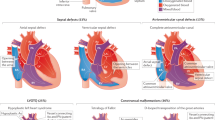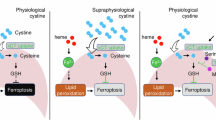Abstract
Homocysteine is an independent risk factor for various cardiovascular diseases. There are two ways to remove homocysteine from embryonic cardiac cells: remethylation to form methionine or transsulfuration to form cysteine. Cystathionine β-synthase (CBS) catalyzes the first step of homocysteine transsulfuration as a rate-limiting enzyme. In this study, we identified a functional variant −4673C>G (rs2850144) in the CBS gene promoter region that significantly reduces the susceptibility to congenital heart disease (CHD) in a Han Chinese population consisting of 2 340 CHD patients and 2 270 controls. Individuals carrying the heterozygous CG and homozygous GG genotypes had a 15% (odds ratio (OR) = 0.85, 95% confidence interval (CI) = 0.75-0.96, P = 0.011) and 40% (OR = 0.60, 95% CI = 0.49-0.73, P = 1.78 × 10−7) reduced risk to develop CHD than the wild-type CC genotype carriers in the combined samples, respectively. Additional stratified analyses demonstrated that CBS −4673C>G is significantly related to septation defects and conotruncal defects. In vivo detection of CBS mRNA levels in human cardiac tissues and in vitro luciferase assays consistently showed that the minor G allele significantly increased CBS transcription. A functional analysis revealed that both the attenuated transcription suppressor SP1 binding affinity and the CBS promoter hypomethylation specifically linked with the minor G allele contributed to the remarkably upregulated CBS expression. Consequently, the carriers with genetically increased CBS expression would benefit from the protection due to the low homocysteine levels maintained by CBS in certain cells during the critical heart development stages. These results shed light on unexpected role of CBS and highlight the importance of homocysteine removal in cardiac development.
Similar content being viewed by others
Log in or create a free account to read this content
Gain free access to this article, as well as selected content from this journal and more on nature.com
or
References
van der Linde D, Konings E, Slager MA, et al. Birth prevalence of congenital heart disease worldwide a systematic review and meta-analysis. J Am Coll Cardiol 2011; 58:2241–2247.
Botto LD, Mulinare J, Erickson JD . Occurrence of congenital heart defects in relation to maternal mulitivitamin use. Am J Epidemiol 2000; 151:878–884.
Botto LD, Mulinare J, Erickson JD . Do multivitamin or folic acid supplements reduce the risk for congenital heart defects? Evidence and gaps. Am J Med Genet PART A 2003; 121A:95–101.
van Beynum IM, den Heijer M, Blom HJ, Kapusta L . The MTHFR 677C->T polymorphism and the risk of congenital heart defects: a literature review and meta-analysis. QJM 2007; 100:743–753.
Hobbs CA, Cleves JA, Melnyk S, Zhao WZ, James SJ . Congenital heart defects and abnormal maternal biomarkers of methionine and homocysteine metabolism. Am J Clin Nutr 2005; 81:147–153.
Kapusta L, Haagmans M, Steegers E, Cuypers M, Blom HJ, Eskes T . Congenital heart defects and maternal derangement of homocysteine metabolism. J Pediatr 1999; 135:773–774.
van Mil NH, Oosterbaan AM, Steegers-Theunissen RP . Teratogenicity and underlying mechanisms of homocysteine in animal models: a review. Reprod Toxicol 2010; 30:520–531.
Zhao JY, Yang XY, Gong XH, et al. Functional variant in methionine synthase reductase intron-1 significantly increases the risk of congenital heart disease in the Han Chinese population. Circulation 2012; 125:482–490.
Harvey MS, Levy HL, Kraus JP . Disorders of Transsulfuration. In: Scriver CR, Beaudet AL, Sly WS, et al. eds. The Metabolic and Molecular Bases of the Inherited Disease. New York: McGraw-Hill 2001: 2007–2056.
Robert K, Vialard F, Thiery E, et al. Expression of the cystathionine beta synthase (CBS) gene during mouse development and immunolocalization in adult brain. J Histochem Cytochem 2003; 51:363–371.
Quere I, Paul V, Rouillac C, et al. Spatial and temporal expression of the cystathionine beta-synthase gene during early human development. Biochem Biophys Res Commun 1999; 254:127–137.
Song XM, Zheng XY, Zhu WL, Huang L, Li Y . Relationship between polymorphism of cystathionine beta synthase gene and congenital heart disease in Chinese nuclear families. Biomed Environ Sci 2006; 19:452–456.
Locke AE, Dooley KJ, Tinker SW, et al. Variation in folate pathway genes contributes to risk of congenital heart defects among individuals with Down syndrome. Genet Epidemiol 2010; 34:613–623.
Kraus JP, Oliveriusova J, Sokolova J, et al. The human cystathionine beta-synthase (CBS) gene: complete sequence, alternative splicing, and polymorphisms. Genomics 1998; 52:312–324.
Bao L, Vlcek C, Paces V, Kraus JP . Identification and tissue distribution of human cystathionine beta-synthase mRNA isoforms. Arch Biochem Biophys 1998; 350:95–103.
Botto LD, Lin AE, Riehle-Colarusso T, Malik S, Correa A . Seeking causes: Classifying and evaluating congenital heart defects in etiologic studies. Birth Defects Res A Clin Mol Teratol 2007; 79:714–727.
Reddy TE, Pauli F, Sprouse RO, et al. Genomic determination of the glucocorticoid response reveals unexpected mechanisms of gene regulation. Genome Res 2009; 19:2163–2171.
Cawley S, Bekiranov S, Ng HH, et al. Unbiased mapping of transcription factor binding sites along human chromosomes 21 and 22 points to widespread regulation of noncoding RNAs. Cell 2004; 116:499–509.
Zhao JY, Sun JW, Gu ZY, et al. Genetic polymorphisms of the TYMS gene are not associated with congenital cardiac septal defects in a Han Chinese population. PLoS One 2012; 7:e 31644.
Meguid NA, Dardir AA, El-Sayed EM, Ahmed HH, Hashish AF, Ezzat A . Homocysteine and oxidative stress in Egyptian children with Down syndrome. Clin Biochem 2010; 43:963–967.
Pogribna M, Melnyk S, Pogribny I, Chango A, Yi P, James SJ . Homocysteine metabolism in children with Down syndrome: in vitro modulation. Am J Hum Genet 2001; 69:88–95.
Al-Gazali LI, Padmanabhan R, Melnyk S, et al. Abnormal folate metabolism and genetic polymorphism of the folate pathway in a child with Down syndrome and neural tube defect. Am J Med Genet 2001; 103:128–132.
Fillon-Emery N, Chango A, Mircher C, et al. Homocysteine concentrations in adults with trisomy 21: effect of B vitamins and genetic polymorphisms. Am J Clin Nutr 2004; 80:1551–1557.
Wang L, Jhee KH, Hua X, DiBello PM, Jacobsen DW, Kruger WD . Modulation of cystathionine beta-synthase level regulates total serum homocysteine in mice. Circ Res 2004; 94:1318–1324.
Maclean KN, Sikora J, Kozich V, et al. A novel transgenic mouse model of CBS-deficient homocystinuria does not incur hepatic steatosis or fibrosis and exhibits a hypercoagulative phenotype that is ameliorated by betaine treatment. Mol Genet Metab 2010; 101:153–162.
Maclean KN, Sikora J, Kozich V, et al. Cystathionine beta-synthase null homocystinuric mice fail to exhibit altered hemostasis or lowering of plasma homocysteine in response to betaine treatment. Mol Genet Metab 2010; 101:163–171.
Gupta S, Kuhnisch J, Mustafa A, et al. Mouse models of cystathionine beta-synthase deficiency reveal significant threshold effects of hyperhomocysteinemia. FASEB J 2009; 23:883–893.
Heil SG, Riksen NP, Boers GH, Smulders Y, Blom HJ . DNA methylation status is not impaired in treated cystathionine beta-synthase (CBS) deficient patients. Mol Genet Metab 2007; 91:55–60.
Wang L, Chen X, Tang B, Hua X, Klein-Szanto A, Kruger WD . Expression of mutant human cystathionine beta-synthase rescues neonatal lethality but not homocystinuria in a mouse model. Hum Mol Genet 2005; 14:2201–2208.
Watanabe M, Osada J, Aratani Y, et al. Mice deficient in cystathionine beta-synthase: animal models for mild and severe homocyst(e)inemia. Proc Natl Acad Sci USA 1995; 92:1585–1589.
Gueant JL, Anello G, Bosco P, et al. Homocysteine and related genetic polymorphisms in Down's syndrome IQ. J Neurol Neurosurg Psychiatry 2005; 76:706–709.
Licastro F, Marocchi A, Penco S, et al. Does Down's syndrome support the homocysteine theory of atherogenesis? Experience in elderly subjects with trisomy 21. Arch Gerontol Geriatr 2006; 43:381–387.
Jenkins KJ, Correa A, Feinstein JA, et al. Noninherited risk factors and congenital cardiovascular defects: Current knowledge a scientific statement from the American Heart Association Council on cardiovascular disease in the young. Circulation 2007; 115:2995–3014.
Finkelstein JD . The metabolism of homocysteine: pathways and regulation. Eur J Pediatr 1998; 1572:S40–S44.
Vis JC, Duffels MG, Winter MM, et al. Down syndrome: a cardiovascular perspective. J Intellect Disabil Res 2009; 53:419–425.
Liu C, Morishima M, Yu T, et al. Genetic analysis of Down syndrome-associated heart defects in mice. Hum Genet 2011; 130:623–632.
Acknowledgements
This work was supported by the grants from the National Science Fund for Distinguished Young Scholars (81025003), the National Basic Research Program of China (973 Program; 2010CB529601), the Program for Innovative Research Team in University (IRT1010), the Doctoral Fund of the Ministry of Education of China (20110071110026), the Commission for Science and Technology of Shanghai Municipality (10JC1401300, 11XD1400900) to HYW, the 973 Program (2012CB910103) to BQ and WYD; and grants from the 973 Program (2012CB944604), the National Natural Science Foundation of China (3100542), the Doctoral Fund of the Ministry of Education of China (20090071120037), and the Natural Science Foundation of Shanghai Municipality (09ZR1404400) to XYY.
Author information
Authors and Affiliations
Corresponding author
Additional information
( Supplementary information is linked to the online version of the paper on the Cell Research website.)
Supplementary information
Supplementary information, Table S1
The genotype frequency of the 3 identified CBS SNPs in CHD patients and controls (PDF 41 kb)
Supplementary information, Table S2
Demographic characteristics in CHD cases and controls (PDF 68 kb)
Supplementary information, Table S3
DNA sequence of all used primer pairs (PDF 42 kb)
Supplementary information, Figure S1
SPR analysis shows that CBS −4673>A does not change the binding affinity with nuclear extracts. (PDF 54 kb)
Supplementary information, Figure S2
Computational analysis predicted transcription factors for CBS variant −4673C>G and variant −4673>A. (PDF 119 kb)
Rights and permissions
About this article
Cite this article
Zhao, JY., Yang, XY., Shi, KH. et al. A functional variant in the cystathionine β-synthase gene promoter significantly reduces congenital heart disease susceptibility in a Han Chinese population. Cell Res 23, 242–253 (2013). https://doi.org/10.1038/cr.2012.135
Received:
Revised:
Accepted:
Published:
Issue date:
DOI: https://doi.org/10.1038/cr.2012.135
Keywords
This article is cited by
-
Effectiveness of community-based folate-oriented tertiary interventions on incidence of fetus and birth defects: a protocol for a single-blind cluster randomized controlled trial
BMC Pregnancy and Childbirth (2020)
-
A TBX5 3′UTR variant increases the risk of congenital heart disease in the Han Chinese population
Cell Discovery (2017)
-
Functional variants of the 5-methyltetrahydrofolate-homocysteine methyltransferase gene significantly increase susceptibility to prostate cancer: Results from an ethnic Han Chinese population
Scientific Reports (2016)



